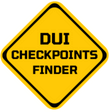The 4th of July is a time for celebration, fireworks, and enjoying time with friends and family. However, it’s also a day when DUI arrests spike due to the festive atmosphere and alcohol consumption. Avoiding a DUI not only keeps you safe but also protects others on the road. Let’s see some practical tips to ensure you have a fun and safe Independence Day.
Understanding DUI Laws
What Constitutes a DUI
Driving under the influence (DUI) means operating a vehicle while impaired by alcohol or other drugs, including prescription medications. Laws vary by state, but most define DUI by measuring blood alcohol content (BAC). A BAC of 0.08% or higher typically qualifies as a DUI for drivers over 21.
Legal Limits and Penalties
The legal BAC limit is usually 0.08%, but penalties can start at lower levels for commercial drivers and those under 21. DUI penalties range from fines and license suspension to mandatory alcohol education programs and even jail time. Knowing these laws can motivate you to make safer choices.
Plan Ahead
Designate a Sober Driver
One of the simplest ways to avoid a DUI is to plan ahead by designating a sober driver. This person commits to staying alcohol-free for the evening, ensuring everyone gets home safely.
Use Public Transportation
If a sober driver isn’t an option, consider using public transportation. Buses, trains, and other public transit can be a safe and economical way to get around on the 4th of July.
Rideshare services like Uber and Lyft offer a convenient alternative. Download the app beforehand and have a backup plan ready in case you need a ride.
Know Your Limits
Understanding Alcohol Tolerance
Everyone’s tolerance to alcohol is different. Knowing your limits can help you avoid overindulging. Factors like weight, age, and gender can affect how alcohol impacts you.
Tracking Your Alcohol Intake
Keep track of how much you drink. Pacing yourself with one drink per hour and alternating with water can help you stay within safe limits.
Alternative Celebrations
Enjoying Alcohol-Free Activities
There are plenty of ways to celebrate the 4th of July without alcohol. Consider activities like watching fireworks, attending a parade, or hosting a picnic with games and music.
Hosting a Dry Party
If you’re hosting, consider making it an alcohol-free event. Serve mocktails and other non-alcoholic beverages, and focus on fun activities that don’t involve drinking.
Stay Hydrated and Eat Well
Importance of Hydration
Drinking water between alcoholic beverages can help keep you hydrated and slow down your alcohol consumption. Dehydration can make the effects of alcohol hit harder, so staying hydrated is key.
Eating Before and During Drinking
Having a meal before you start drinking can slow the absorption of alcohol into your bloodstream. Snacking throughout the evening can also help maintain your energy and prevent overdrinking.
Utilize Technology
Apps to Track Alcohol Consumption
There are several apps available that can help you track your alcohol intake. These can provide reminders to drink water and alert you when you’re approaching your limit.
Make sure you have rideshare or taxi apps installed on your phone. Having these ready to go can make it easier to find a safe ride home at the end of the night.
Be Aware of Prescription Medications
Effects of Mixing Alcohol and Medication
Mixing alcohol with certain medications can enhance the effects of alcohol, making you more impaired than you realize. Always read warning labels and consult with a doctor if you’re unsure.
Consulting with a Doctor
If you’re on prescription medication, talk to your doctor about the potential interactions with alcohol. They can provide guidance on what’s safe and what to avoid.
Educate Yourself and Others
Attending DUI Education Programs
DUI education programs aren’t just for those who’ve been charged with a DUI. They can provide valuable information on the dangers of impaired driving and tips for staying safe.
Spreading Awareness Among Friends and Family
Share what you’ve learned with friends and family. Encouraging others to make safe choices can help create a safer community for everyone.
Recognize the Signs of Impairment
Physical and Mental Indicators
Signs of impairment include slurred speech, poor coordination, and slow reaction times. Mentally, impaired judgment and difficulty concentrating are red flags.
What to Do if You or Someone Else is Impaired
If you or someone else is showing signs of impairment, it’s crucial to stop drinking and seek a safe way home. Never let an impaired person drive, and consider calling a rideshare or finding a sober friend to help.
Consider the Financial Impact
Costs Associated with a DUI
A DUI can be incredibly costly. Fines, legal fees, increased insurance rates, and potential job loss add up quickly. Avoiding a DUI can save you thousands of dollars.
Long-Term Financial Consequences
Beyond immediate costs, a DUI can affect your financial future. A criminal record can limit job opportunities and result in long-term higher insurance premiums.
Know the Social Implications
Impact on Personal Relationships
A DUI can strain relationships with family and friends. Trust and respect can be damaged, and repairing these relationships can be challenging.
Professional Repercussions
Professionally, a DUI can lead to job loss or difficulty finding future employment, especially in fields requiring a clean driving record.
Engage in Safe Driving Practices
Importance of Defensive Driving
Even if you’re sober, practicing defensive driving is crucial. Stay alert, follow traffic laws, and be prepared for other drivers who might not be as responsible.
Being a Responsible Passenger
As a passenger, encourage safe driving practices. Offer to drive if the driver is impaired, and speak up if you feel unsafe.
Why Are DUI Checkpoints Set Up on the 4th of July?
The 4th of July sees a significant increase in alcohol consumption as people celebrate with parties and gatherings. This spike in drinking leads to a higher risk of drunk driving incidents. To counteract this, law enforcement agencies increase patrols and set up DUI checkpoints to catch impaired drivers before they can cause accidents.
How Do DUI Checkpoints Work?
- Location Selection: Law enforcement selects locations based on data, targeting areas with a high incidence of DUI arrests or accidents.
- Notification: In many states, police must announce the time and location of DUI checkpoints in advance. This information is often shared through local media outlets and police department websites.
- Setup: Officers set up signs and cones to guide traffic through the checkpoint. They typically stop every vehicle or a predetermined number of vehicles (e.g., every third car) to ensure consistency.
- Screening: During the stop, officers look for signs of impairment such as the smell of alcohol, slurred speech, and erratic behavior. They may also check for other violations like expired licenses or seatbelt infractions.
- Field Sobriety Tests: If an officer suspects a driver is impaired, they may conduct field sobriety tests or use a breathalyzer to measure blood alcohol content (BAC).
- Arrests and Citations: Drivers who fail sobriety tests or have a BAC over the legal limit (usually 0.08%) may be arrested and face DUI charges. Officers may also issue citations for other violations discovered during the stop.
Your Rights at a DUI Checkpoint
It’s important to know your rights when going through a DUI checkpoint:
- You Must Stop: If you approach a DUI checkpoint, you are legally required to stop and comply with the officers’ instructions.
- You Can Refuse Searches: While you must provide identification and comply with sobriety tests if requested, you can refuse a vehicle search if the officers don’t have probable cause or a warrant.
- You Can Remain Silent: You have the right to remain silent and avoid answering incriminating questions.
- Legal Consequences of Refusal: Refusing a breathalyzer or field sobriety test can result in immediate penalties, such as license suspension, depending on state laws.
Conclusion
Staying safe on the 4th of July doesn’t mean you can’t have fun. By planning ahead, knowing your limits, and making smart choices, you can avoid a DUI and enjoy the holiday responsibly. Remember, it’s not just about your safety, but the safety of everyone on the road.
FAQs
1. What are the legal consequences of a DUI on the 4th of July?
On the 4th of July, DUI penalties can be especially harsh due to increased law enforcement. Legal consequences typically include fines, license suspension, mandatory DUI education programs, and potentially jail time. These penalties can vary by state and the specifics of the incident.
2. Are DUI checkpoints more common on the 4th of July?
Yes, DUI checkpoints are more common on the 4th of July. Law enforcement agencies often set up additional checkpoints to catch impaired drivers and ensure public safety during the holiday.
3. Can I be charged with a DUI if I’m just sitting in my parked car?
Yes, you can be charged with a DUI even if your car is parked but you are in control of the vehicle. If you are in the driver’s seat with the keys in the ignition or nearby, you could be considered in control of the vehicle and thus eligible for a DUI charge.
4. How can I safely enjoy alcohol on the 4th of July without risking a DUI?
To safely enjoy alcohol, plan ahead by designating a sober driver, using rideshare services, or taking public transportation. Alternatively, consider hosting or attending events that offer non-alcoholic beverages and activities.
5. What should I do if I see a friend about to drive drunk?
If you see a friend about to drive drunk, encourage them to use a rideshare service, offer to drive them yourself, or take their keys and help them find a safe way home. It’s important to prioritize safety over convenience.
6. How does alcohol affect driving abilities?
Alcohol impairs your driving abilities by slowing reaction times, reducing coordination, and impairing judgment. Even small amounts of alcohol can affect your ability to drive safely, making it dangerous to get behind the wheel.
7. What are some alternative transportation options on the 4th of July?
Alternative transportation options include public transportation, rideshare services like Uber and Lyft, taxis, or using designated sober drivers. Planning these options in advance can help ensure a safe journey home.
8. Can I refuse a breathalyzer test during a DUI stop?
Yes, you can refuse a breathalyzer test, but doing so often leads to immediate penalties, such as license suspension and fines. Laws vary by state, so it’s important to know your local regulations regarding breathalyzer refusals.
9. What are the long-term effects of a DUI conviction?
A DUI conviction can have long-term effects, including a permanent criminal record, increased insurance rates, potential job loss, and difficulty finding future employment, especially in roles that require driving.
10. How can I educate myself and others about the dangers of DUI?
Educate yourself by attending DUI education programs and staying informed about local laws and statistics. Share this information with friends and family, and promote safe driving practices, especially during holidays like the 4th of July.





